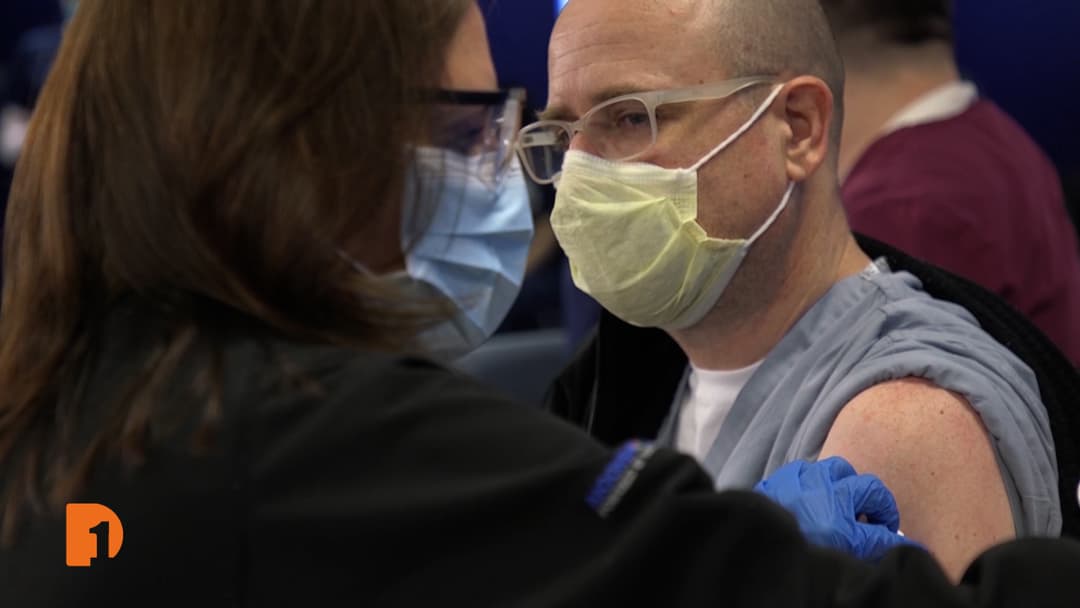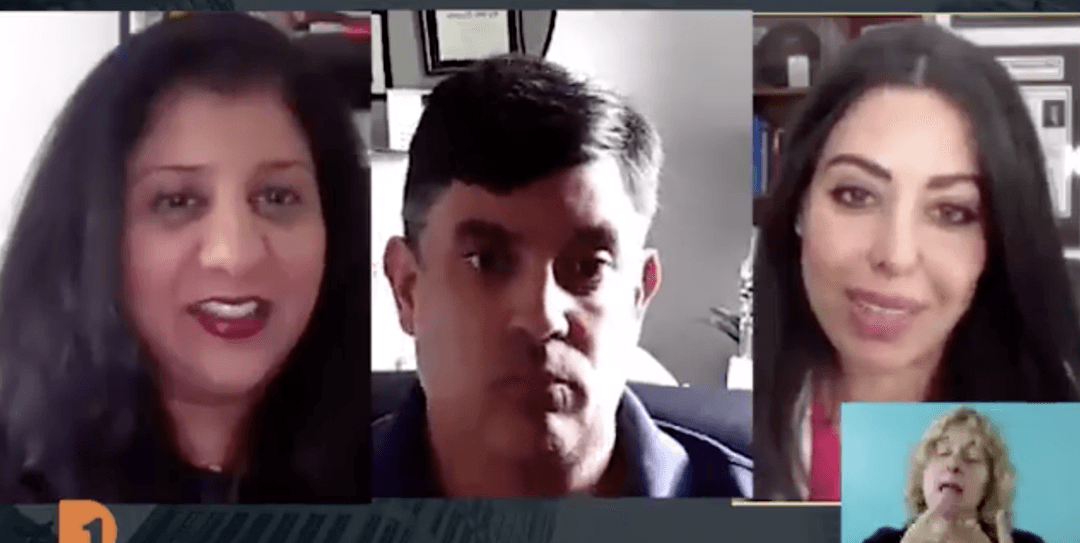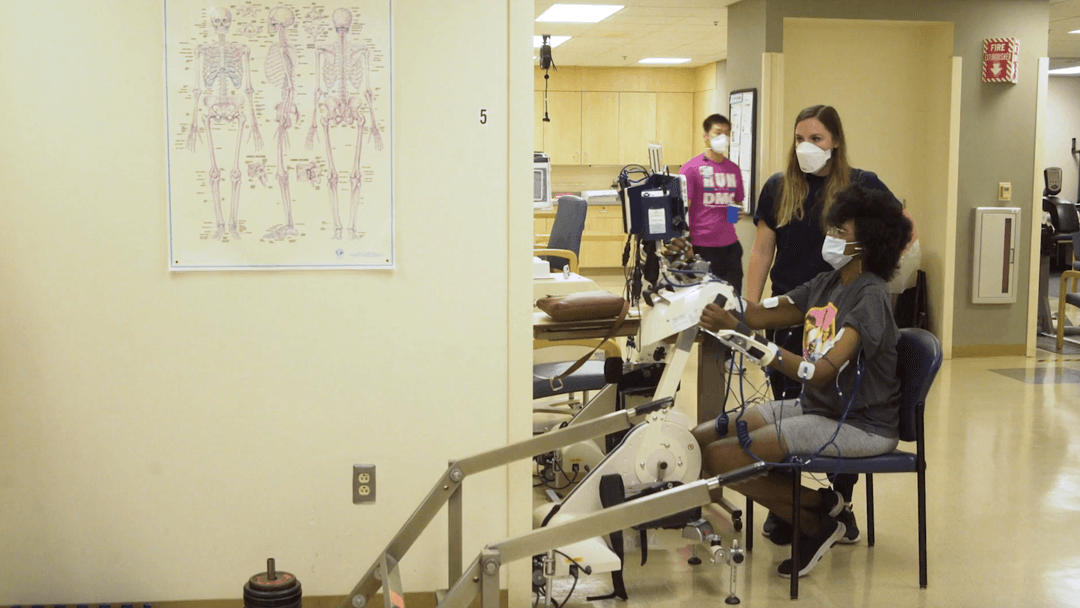Dr. Nick Gilpin | COVID Vaccine Explainer
Jan 1, 1970
As more doses are released and more people get vaccinated, we wanted to get a better idea of how effective the vaccine is, the side effects and how long we’ll still all be wearing masks. Here’s Beaumont Infectious Disease specialist, Dr. Nick Gilpin.
Read full transcript
Dr. Nick Gilpin:
One of my roles here is to be an ambassador for our health care workers and to show them that I believe this is a safe and effective vaccine and I’m going to take it, and so you should to. It’s like every other shot I’ve ever gotten.
How did the accelerated development of the vaccine work, and how transparent was it?
Something that I want people to understand is that, quick does not mean bad in medicine. The fact that we were able to, as a society, as a manufacturing industry, laser focus ourselves on manufacturing vaccines very transparently. They were you know, the doors were wide open to showing us their data throughout this process. We can look over their shoulders, the shoulders of the scientists that were manufacturing the vaccine, and independently review this data.
During the summer they were doing, of course, their phase one, phase two, and phase three clinical trials. Phase one trials is safe. Phase two, does it work? Phase three, sort of ongoing monitoring of the vaccine effectiveness.
What is the difference between the Pfizer and Moderna vaccines?
Pfizer and Moderna are both extremely safe and effective, that’s the good news. They’re both around 95% effective. They both are very similar in terms of their side effect profiles, meaning very good, very low risk of any serious side effects.
The key differences between these two vaccines really are less about the vaccine itself, and more about the distribution and the storage of the vaccine. From the perspective of the consumer, there’s really not any difference.
What side-effects should most people expect, and how common are they
The risk of any serious side effects is below 5%, which is very good. Most common is sore arm, low grade fever, chills, fatigue, body aches, of which we’re not seeing a lot if you do get those side effects, you can certainly take Tylenol or Motrin. You shouldn’t be afraid to take anything like that, it’s not going to blunt the effect of the vaccine. We have been encouraging people, if they’re concerned about side effects or if they have a history of having exuberant reactions to vaccines, to schedule the vaccine on a day when you know that the next day you’ll have some time to recover.
How does the two-shot process work?
You really should not pick and mix. I want to get Moderna one and Pfizer two or something else one and something else two it really should be the same and the same. 3 weeks apart for the Pfizer vaccine, 4 weeks apart for the Moderna vaccine. My advice to people who are getting their vaccines scheduled is, don’t necessarily think about when you’re going to get the first dose, think about when you’re going to get the second dose. Be mindful when you’re scheduling that you’re going to be available to get that second shot whenever it may be.
How soon after getting the shot do you develop immunity?
After about 7 days after the first dose, you’ll have around 50% protection, that’s pretty good, It’s not enough, but it’s a pretty good start. Then you’ll get your second dose, whether it’s 3 weeks or 4 weeks, depending which vaccine you get. Then fast forward another 7 to 10 days and you’ll have the full protection on board, which for both of these vaccines is around 95% effectiveness
How long does immunity last once you are vaccinated
We believe, and I’ve heard the vaccine manufacturers say, they anticipate that immunity from these vaccines will probably last more than 2 years and possibly as long as 5 years. That’s preliminary, and again, we have a lot more to learn in this space. But as of right now, it doesn’t look like this is going to need to be an annual vaccine like the flu shot is. You actually seem to get stronger immunity from the vaccine than you get from the infection itself. So even if you have gotten COVID before, you should still be thinking about getting the vaccine because it’s going to give you longer lasting protection than the infection
Can you still carry and spread the virus after you are vaccinated?
So we know that the vaccine is extremely effective at protecting you from getting COVID disease, but there’s the unanswered question of does the vaccine prevent COVID transmission? Think about it like this. Say that someone comes along and they cough or sneeze in my face. I will not get sick from COVID myself because I’m vaccinated, but there’s still a potential for transmission. So what does that practically mean? What it means is, I want you to get vaccinated, but after you get vaccinated, that’s not a free pass to then rip off your mask and go on about life as we knew it. We’re still going to have to be diligent about doing all the things, wearing masks, social distancing, handwashing, at least for the foreseeable future. I can tell you scientists are working on this right now to try to answer that very question of does the vaccine not only stop disease, does it also stop transmission? So stay tuned.
What percentage of Americans must be vaccinated to reach herd immunity?
I’ve heard numbers floated around in the 70 to 80 percent range, that’s what we consider to be herd immunity, that means that people who were unable to get vaccinated for one reason or another, we want those people to still have the benefits of protection. So really, 70% is that magic number we want to see. It’s difficult for this country to get 70% of anything. So, we’re going to have a lot of work to do, we suspect that’s going to take the better part of 2021.
When might the vaccine be widely available to anyone who wants it?
We’re trying to start with health care, move to other critical infrastructure workers, into people that are over age 65, that’s where we are right now. And then once we’ve satisfied that, then open season, anybody can get it. It’s unfortunate that we don’t have enough supply to meet demand, but with time and with a little bit more infrastructure and with hopefully a little bit help from our friends at the state and federal government, I’m optimistic that by spring summer we’ll be able to get a lot of people vaccinated, and that’s our goal.
Stay Connected
Subscribe to One Detroit’s YouTube Channel.
Catch the daily conversations on our website, Facebook, Twitter, and Instagram @detroitperforms
Related Posts
Leave a Reply
Your email address will not be published. Required fields are marked*




























